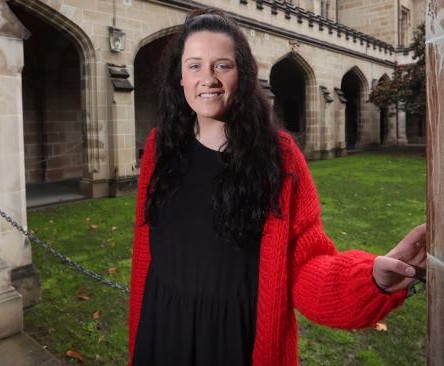Blog
-

Isolation and depression can haunt the hard of hearing.
 24 Aug , 2017
24 Aug , 2017
Isolation and depression can haunt the hard of hearing.
When Matilda Carnegie received a cochlear implant at nine months, she was the world’s youngest recipient. Nineteen years later she’s an arts student, admitted to the University of Melbourne with no special consideration for her disability.
But the road between then and now has been an obstacle course of exhaustion and isolation, peppered with episodes of depression and binge eating. “People think, you’re doing really well — all your problems are solved,” she says.
“I don’t think they realise that there are after-effects of the trauma when I was younger, the hearing impairment and lack of social life.”
A ream of studies from Macquarie University has documented the toll deafness takes on people’s emotional and mental health. One of the six papers explores the neurophysiological hallmarks of “effortful” listening to unpack the fatigue and stress felt by those who have to work hard to hear.
Two studies look at the outcomes when people have damaged cochlear implants replaced, and the advantages of dual implants. Three others explore the mental and social struggles of the deaf, from children to grandparents.
The papers, published in a special edition of the journal Trends in Hearing, are the latest research efforts from the Australian Hearing Hub. Spawned by a $40 million grant from the Education Investment Fund, it brings together nine organisations in a symbiotic splurge of research, education and clinical aid. Gitte Keidser, who co-authored one of the papers, says hearing problems affect more than mental health. The deaf tend to retire earlier than other Australians, take more sick leave and suffer more cardiovascular issues. Cause and effect is hard to tease apart. For example, cardiovascular problems could trigger hearing loss by preventing blood flow to the inner ear. Equally, loud noises that induce hearing loss could also cause cardiovascular problems.
Keidser’s study mined epidemiological data covering almost 135,000 Britons from their 40s to their 70s, investigating the relationship between deafness and depression.
She found it was strongest at the younger end of the spectrum, reflecting the “stigma” surrounding hearing loss in middle age.
Older people have plenty of peers with hearing aids, Keidser says, but younger people stand out. And the disability was likely to interfere more with work, family and financial responsibilities.
Keidser says hearing loss often happens in middle age, but the typical sufferer puts up with it for seven years before seeking help. She says most audiologists have some awareness of these issues, but need to acknowledge them more. Many resist inviting clients to “open up” about mental health because they feel unqualified to help.
They need a plan for dealing with the psychosocial problems of hearing loss, she says, even if it is just referral to a counsellor.
Still, Carnegie jokes that there’s an upside to a hearing device that can be switched off. “I get very good sleep,” she says. “And if I don’t like someone, I can pretend I can’t hear them.”
Source: theaustralian.com
Image credit: David Geraghty





























































































































































































































































































































































































































































































































































































